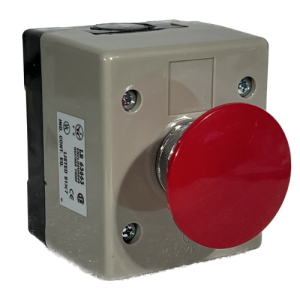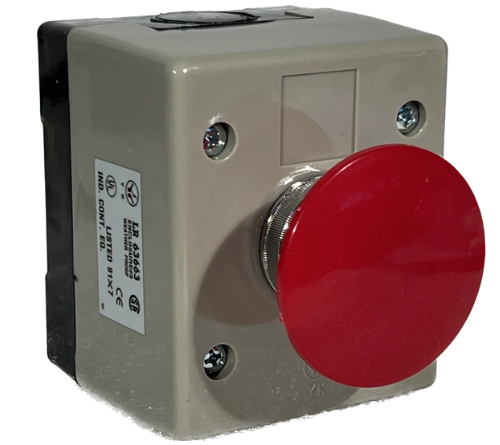Commercial Heating Controls: Enhancing Efficiency and Comfort in the Commercial Sector

Energy management is one of the most critical issues in the modern commercial sector. However, HVAC systems are crucial in providing comfort in workplaces, but they are also one of the greatest expenses that a company can incur.
To meet this challenge, businesses have adopted commercial heating controls. Such systems are intended to improve the heating systems in commercial premises, eliminate energy losses, and enhance comfort and performance.
Types of Commercial Heating Controls
Commercial heating controls come in various categories, and they are classified according to their complexity. Here are some of the most common types!
1. Manual Thermostats
Manual thermostats are the most basic form of heating control available. They enable users to set and control the temperature of the environment manually. These systems are often used in small commercial buildings where more complex systems may not be required.
2. Programmable Thermostats
Programmable thermostats offer more flexibility than manual models. These devices enable its users to select a particular temperature for each time of the day or day of the week. For instance, the system can reduce the temperature at night when the machines are turned off and increase it during the day when the machines are on.
3. Smart Thermostats
Smart thermostats are more sophisticated than traditional programmable ones. They incorporate sensors and algorithms to recognize the pattern of warm-up in a building and then regulate it on their own. These devices can also be operated from a distance using a smartphone or computer, which is an added advantage for the building managers.
4. Zoned Warming Systems
These systems segregate a building into various heating zones, each with its own thermostat. This makes it possible for businesses to warm only the sections of the commercial building that are in use, thus conserving energy. For instance, it is possible to heat an entire large office building but only heat the sections that are occupied while leaving the rest unheated.
5. Building Management Systems (BMS)
Building Management Systems are intricate systems that coordinate and regulate different building services like heating, ventilating, and air conditioning. With BMS, organizations can get data on the use of energy on a real-time basis and will be able to adjust their heating system for optimum use. These systems are suitable for most large commercial buildings or facilities requiring sectional warmth.
The Role of Commercial Controls in the Industrial Sector
1. Office Buildings
Offices need to regulate temperatures as they affect the performance of the employees in the building. This also encompasses the right conditions to provide comfort to employees while at work and, in the long run, can improve their health. Warming controls can be set to turn off during the weekend or at night when there are no people in the offices.
2. Retail Spaces
Shops and stores depend on the comfort of the customer to enhance their shopping experience. Cold or uncomfortable environments can chase customers away. Commercial controls enable the store to regulate temperatures despite the changing weather conditions in the external environment.
3. Hotels and Hospitality
The business environment of the hospitality industry is pretty much focused on the comfort of the guests. Floor and wall finishes, guest rooms and lobbies, corridors, and public areas require proper temperature to make guests comfortable. The commercial heating controls allow the hotel to regulate different areas and heat according to the occupancy levels and guests’ preferences.
4. Industrial and Manufacturing Facilities
In industrial and manufacturing areas, they are essential for achieving the right working conditions and the efficiency of the apparatus. For instance, some production processes may need specific temperatures in order not to cause flaws or harm to the products.
5. Healthcare Facilities
Heating controls in healthcare facilities can assist in regulating the temperature of the operating theatre, patients’ wards, and reception areas. Smart controls can also give instant feedback to the staff on matters concerning patient needs that might be affected by the changes.
Benefits of Commercial Heating Controls
1. Energy Efficiency
One of the main advantages of commercial heating controls is the increase in energy efficiency. By controlling the temperatures and adjusting the warming schedules, these systems can save much energy, resulting in lower bills. These types of smart thermostats also improve energy efficiency by only heating the zones of the building that are in use.
2. Cost Savings
Reduced energy consumption leads to cost savings for various companies. By avoiding heating during other periods of the day or when no one is in the building, companies reduce their overall energy costs. Moreover, sophisticated BMS offer real-time data about energy consumption and, therefore, offer more opportunities for cost reduction.
3. Improved Comfort
Heating control systems in commercial buildings dictate the comfort of the indoor environment for employees, customers, and guests. Temperature control helps to increase efficiency, satisfy the customers, and create a favorable atmosphere for the business.
4. Sustainability
Many businesses are now concerned with sustainability and minimizing the emission of greenhouse gases. They also assist in energy conservation and save energy for both businesses and the environment. It always has the advantage of making a company appear more environmentally friendly to its clients.
5. Automation and Convenience
Smart heater controls feature various automation, which means that systems can easily be controlled remotely. This is particularly helpful to building managers who are in charge of extensive business structures. Managers can control the temperature using a remote and see how much energy has been used besides receiving notifications of any problem.
Conclusion
Energy efficiency is now one of the most critical concerns in the modern business environment. Commercial heating controls allow organizations to regulate warming systems, minimize energy losses, and improve comfort in premises. These controls allow for a comfortable climate for employees, clients, and guests while keeping energy costs under control.

